Wellcome Photography Prize Commission 2019
Adrienne Surprenant was the Wellcome Photography Prize Fellow 2019. Her commission explores the theme of outbreaks and focuses on the human toll of dengue, a viral infection spread by mosquitoes.
Dengue fever is one of the most deadly and prevalent mosquito-borne diseases – around half of the world’s population are now at risk of infection by the dengue virus. In the Wellcome Photography Prize 2019 Commission, which explores the theme of outbreaks, Adrienne Surprenant tells the human story of this disease.
Adrienne, a Canadian photojournalist, was the Wellcome Photography Prize Fellow 2019. The visual story for her commission, 'Dengue Fever – Falling Between the Cracks', focuses on parts of the world where dengue is common. She captures the devastating human consequences for families and communities already affected or at risk of infection from this deadly disease.
Her pictures also explore the logistical challenges of managing the spread of disease and the attempts being made to tackle it in Bangladesh, Fiji, Brazil and Réunion island in the Indian Ocean.
Climate change is affecting the prevalence of dengue in Dhaka, one of the world’s densest cities.

Naria is on the banks of the Padma river, the biggest channel of the Ganges. In recent years, severe erosion has caused 13 km2 of land to fall into the river.
In 2018, extended heavy monsoon rains resulted in the disappearance of 2 km2 of land within two months, leaving up to 5,000 people homeless. With only a few shelters available, many of these people are living in dire conditions, where the risk of diseases like dengue is much higher.
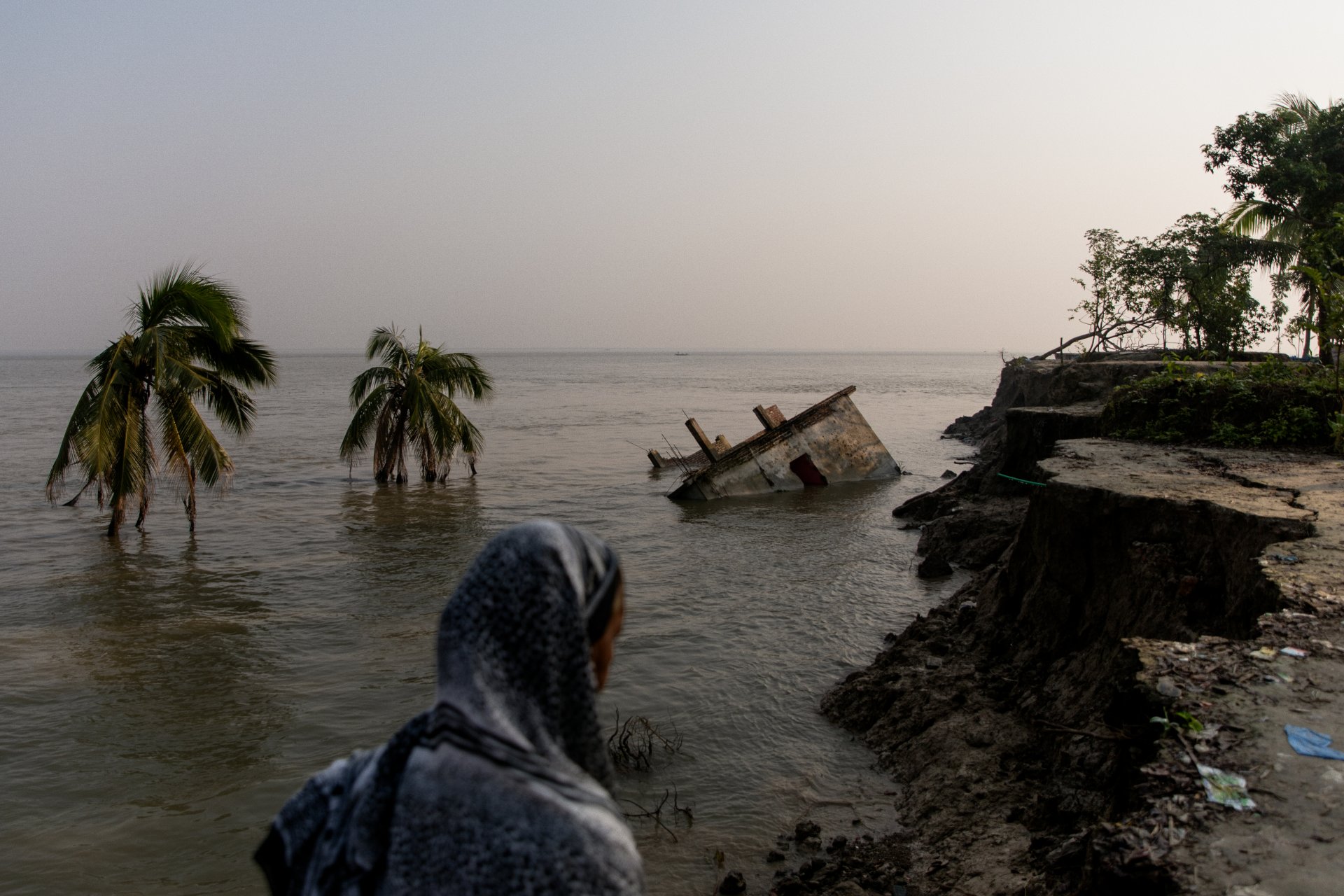

Ibrahim (centre) has lost his house twice due to land erosion caused by the Padma river. As well as countless homes, many other buildings and services have been engulfed, including several schools, mosques, the hospital, two health clinics and parts of a bazaar.
As well as the structural devastation, this heavy tropical rainfall also contributes to the breeding success of Aedes aegypti mosquitoes and the spread of dengue, particularly in areas where healthcare provision is limited.
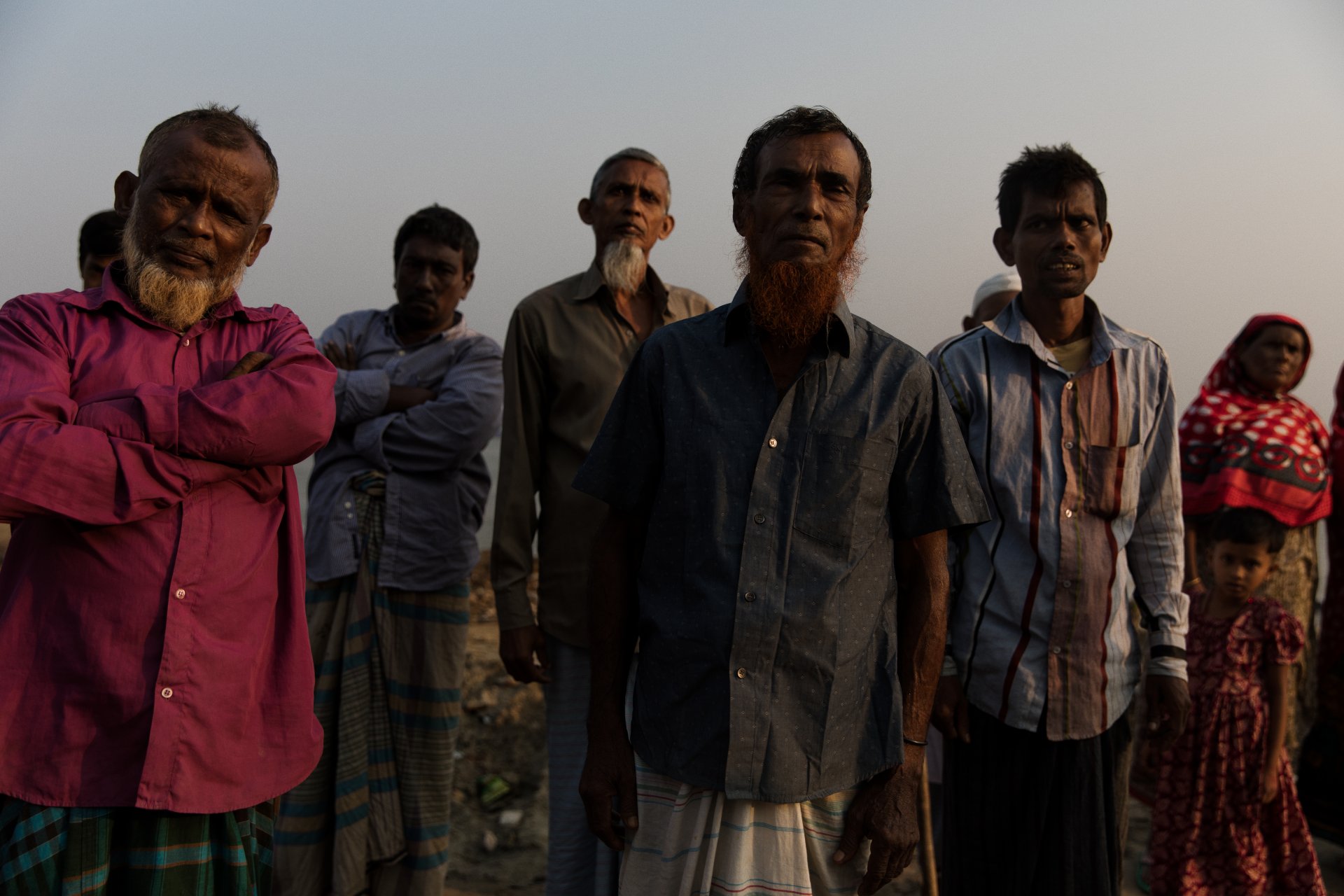

The streets of Uttara, a suburb of Dhaka that has expanded rapidly over the past 20 years, are sprayed with insecticide to exterminate mosquitoes during an outbreak of dengue. This process of 'fogging' is unlikely to have much success in preventing an outbreak from spreading as it targets only adult mosquitoes, leaving eggs and larvae unharmed.
Despite its limited efficacy, the fumigation process gives communities a sense of reassurance that some effort is being made to protect them.
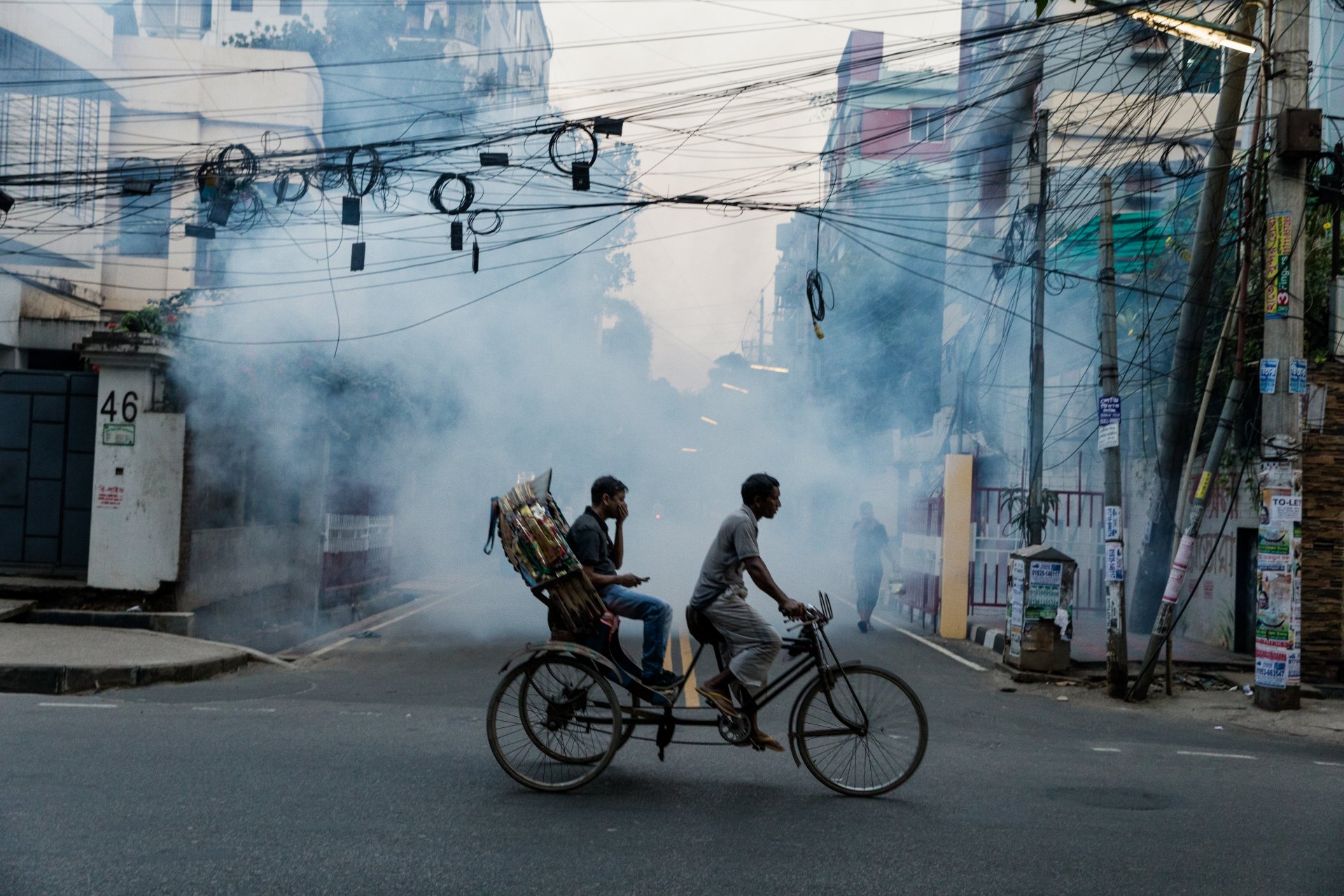

Sohid, 45, is admitted at the Dhaka Medical Hospital, as the doctors suspect he has dengue. He suffers from stomach pain (which can signal a haemorrhage), vomiting and motion problems.
'I don’t have any money left,' says his wife, Shenuwar. 'I gave it all for the bed and I have spent so much the last three days for the tests.' The previous week their daughter was also hospitalised with dengue. They struggle to pay for the baksheesh (bribe) required for medical care even though basic public health services are meant to be free in Bangladesh.
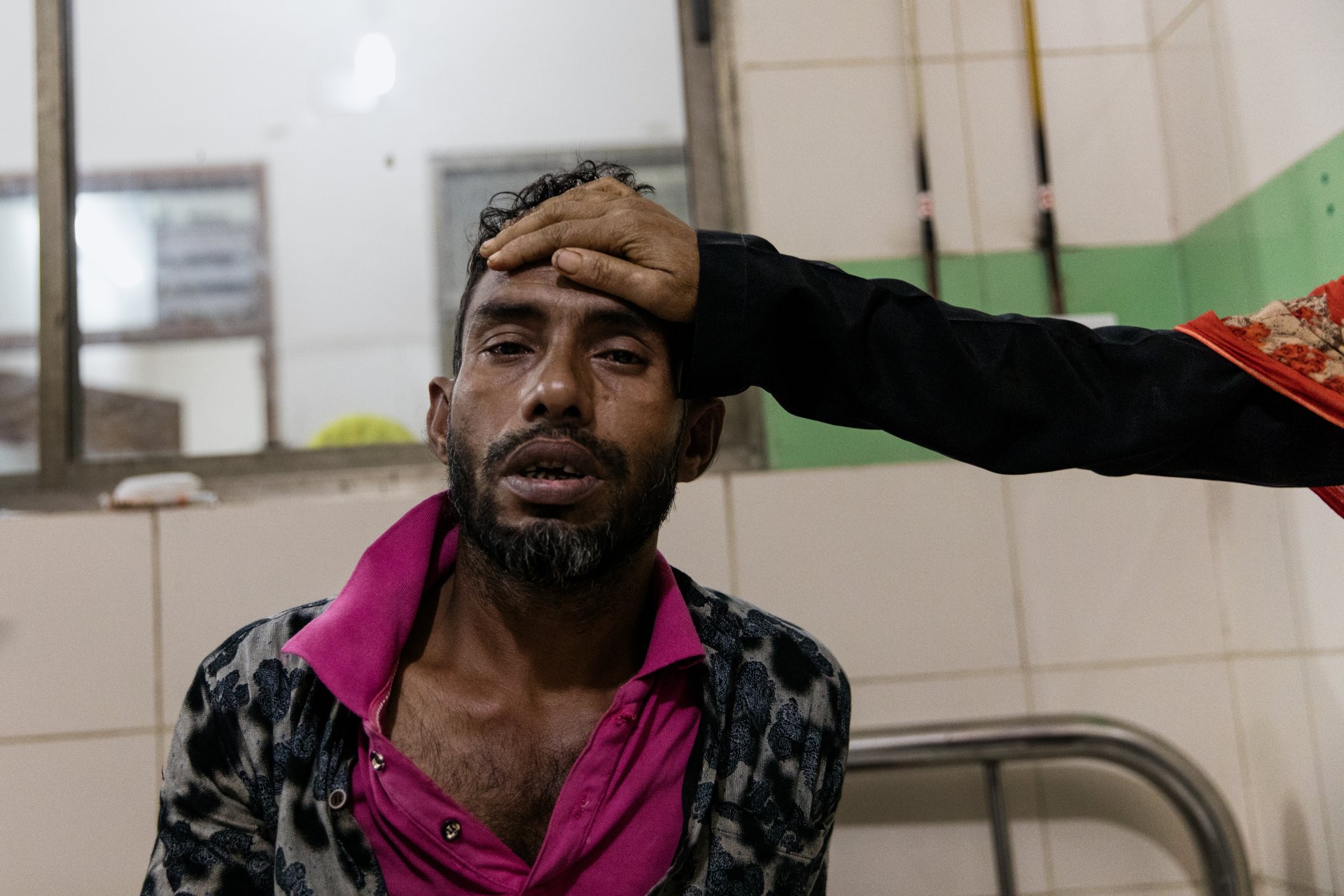

Meena is tearful. Her eight-year-old son Maruf died a week ago from dengue. 'There was blood coming out of his eyes, his ears, his mouth. Blood, blood, blood,' she recalls painfully. 'No father should carry his dead son’s body, and no mother should grieve her child,' adds the father. 'Nobody should die of this disease, there should be an initiative to cure it as soon as possible.'
In October 2018, almost 7,450 cases had been reported in Bangladesh, making it the deadliest outbreak since the first recorded epidemic in 2000.
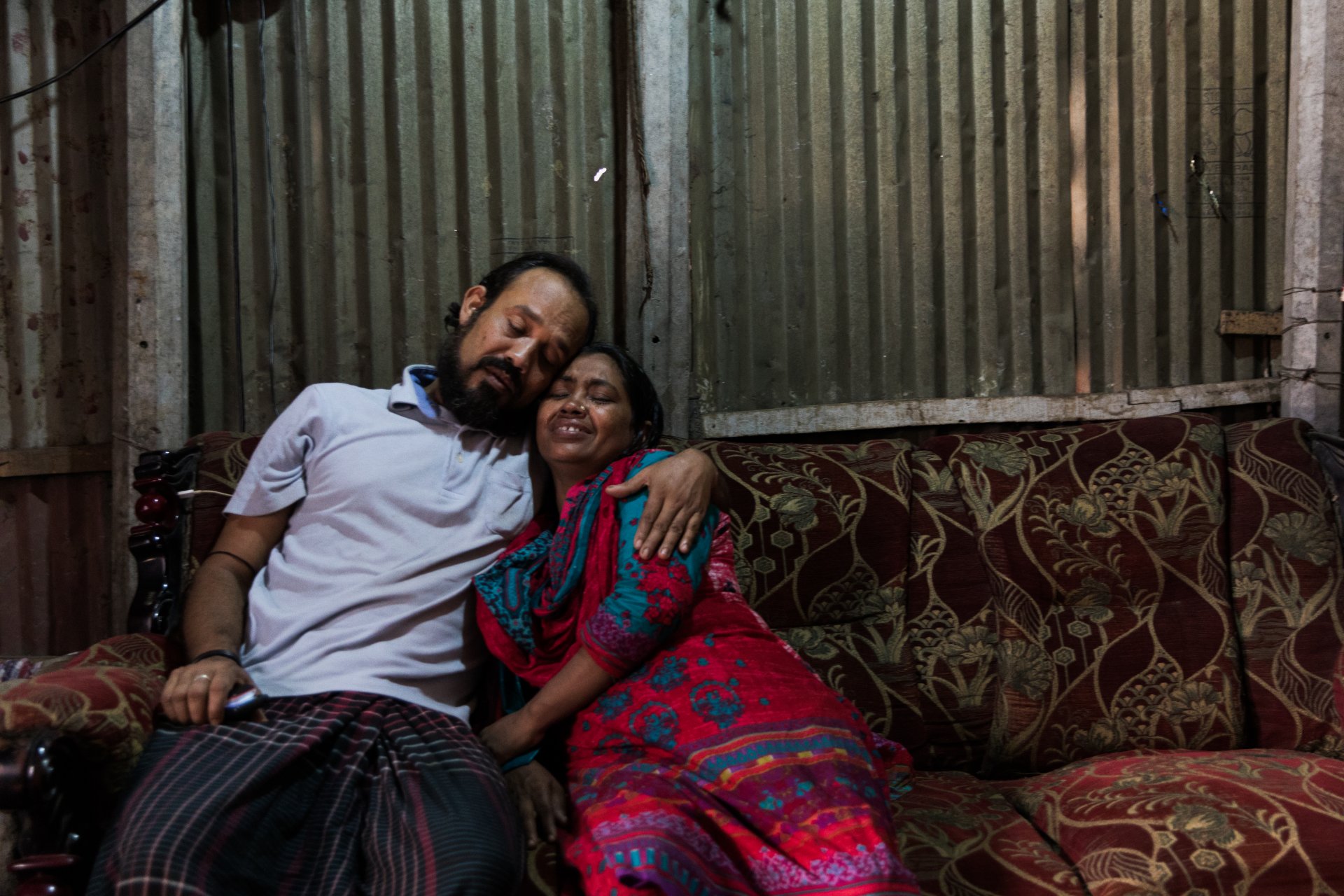

On the Buriganga river at Keraniganj port, boat drivers who take people across the river during the day sleep on their boats at night protected by mosquito nets. But although the Aedes aegypti and Aedes albopictus mosquitoes that carry and transmit dengue are most active around sunrise and sunset, they predominantly bite during the daytime when the boat drivers are most exposed.

Tourism can breathe life into remote nations but can also bring problems when travellers accidentally transport dengue-carrying mosquitoes from neighbouring islands.

Shirya walks behind her house in the Nanuku settlement. During the rain and cyclone season, excess water pooling around the settlement creates the perfect environment for disease-causing mosquitoes to breed.
Shirya and her father Sunil were both infected with dengue for the first time in August 2018. She was hospitalised for four days, but he was kept at the hospital for more than a week. 'I was very scared,' he recalls.
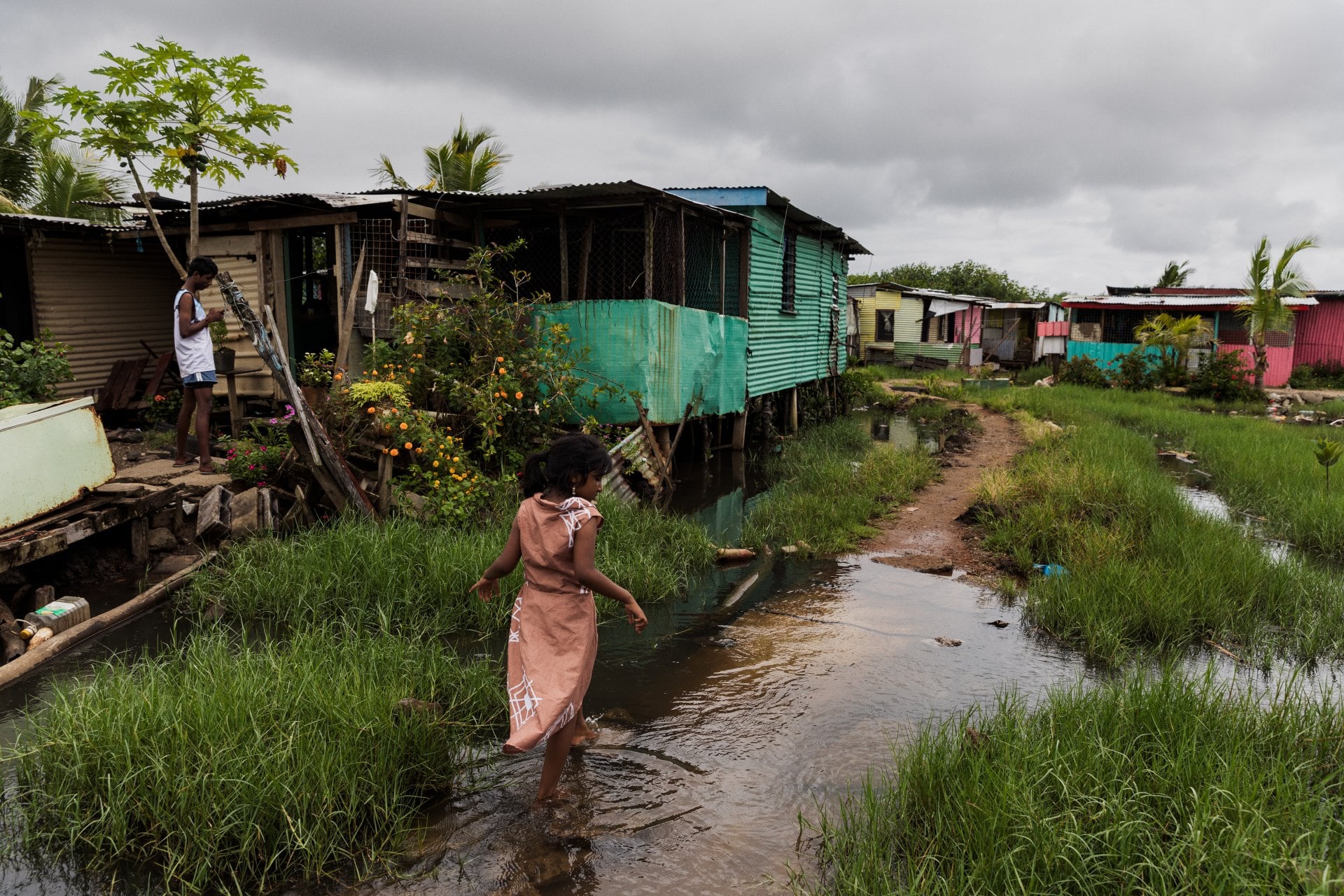

Ofa and her daughter Carol sit by the mosquito trap they have from the World Mosquito Program. The trap is used to monitor the population of mosquitoes carrying Wolbachia, a bacterium that reduces their ability to transmit dengue and other diseases.
'It has been useful and good, helping the community and environment. I have seen other families that had dengue, which is why I accepted the trap,' explains Ofa.
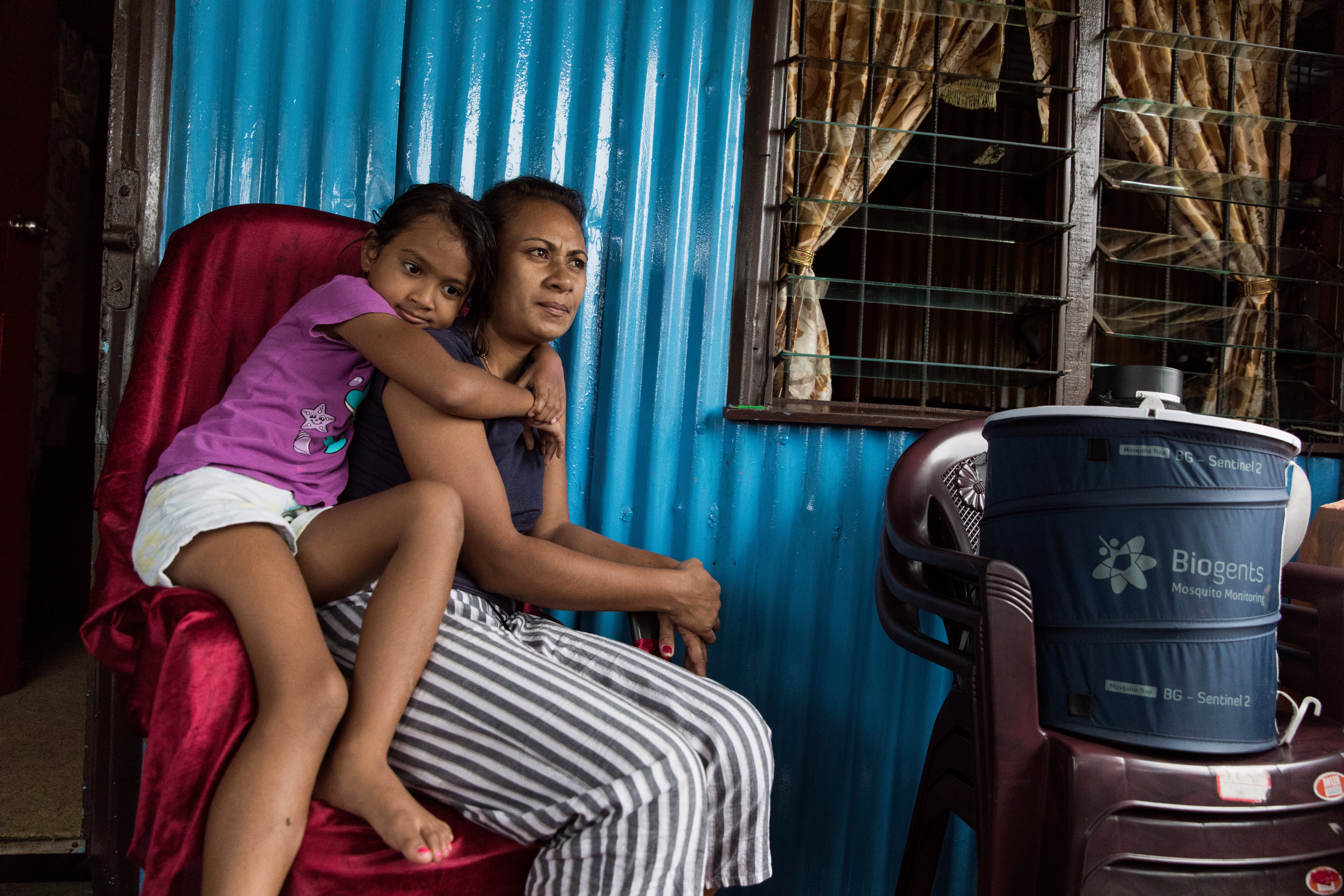

Prashant, aged eight, is suffering from dengue. He has had a very high fever for the last four days and is unable to eat or walk.
According to his mother, Renu, he usually has so much energy, but has now lost weight. 'I spent all the time crying and not sleeping because I was worried,' she says. 'I had dengue before, but it was not as bad as this. It is very dangerous, all the body shakes around. In Fiji, we have it too much.'
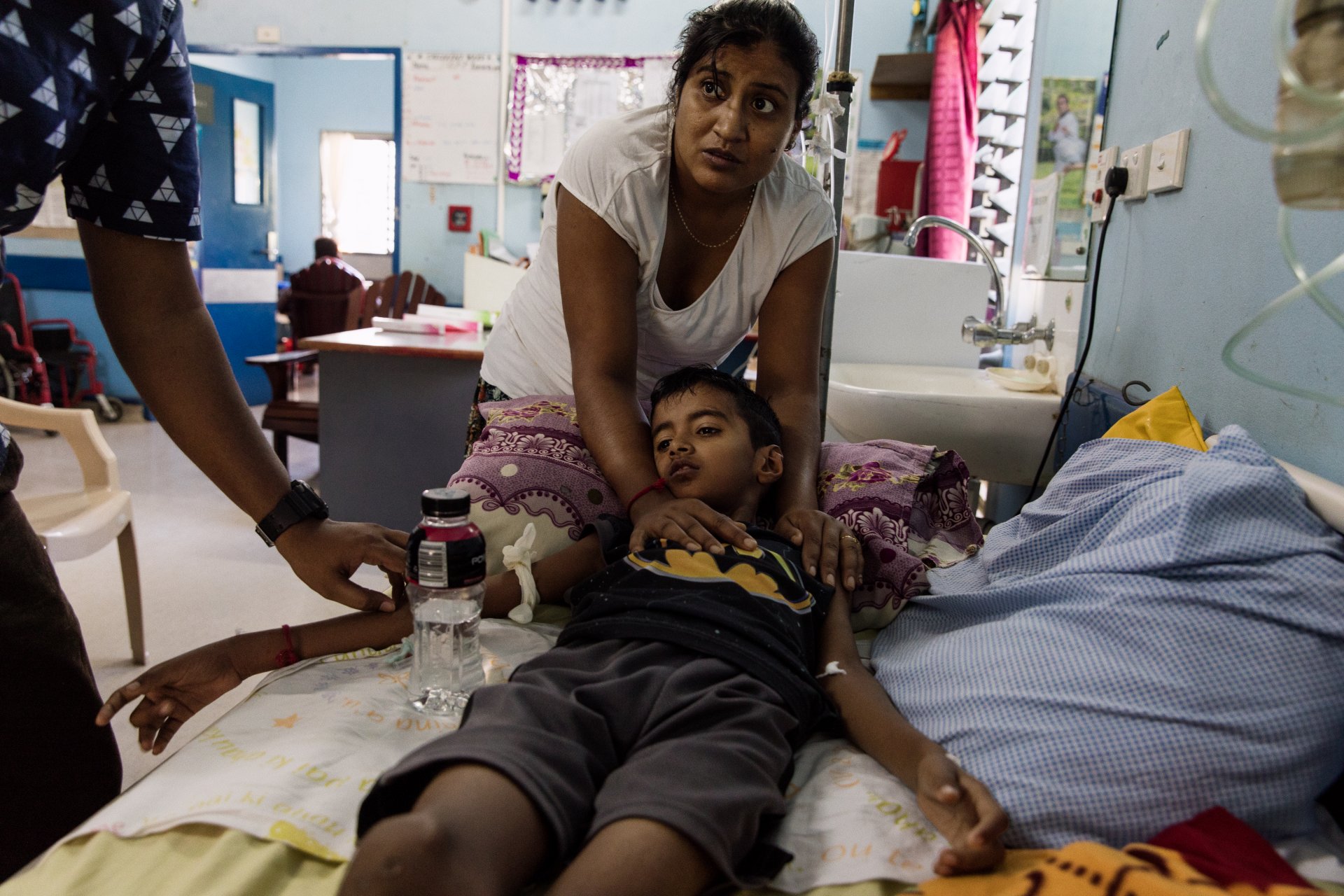
Zika may be a diminishing threat in Brazil, but the impact on community trust in health services, crucial for preventing and treating dengue, is still being felt.

Marcos has been working with the World Mosquito Program in Niteroi for a year, releasing mosquitoes that carry Wolbachia bacteria. It’s the first day of a second round of releases. His car contains 900 tubes, which are released every 50 metres.
Mosquitoes carrying Wolbachia are less able to transmit dengue, and, over time, the Wolbachia mosquitoes breed with the wild mosquito population, leading to a decrease in the spread of infection.
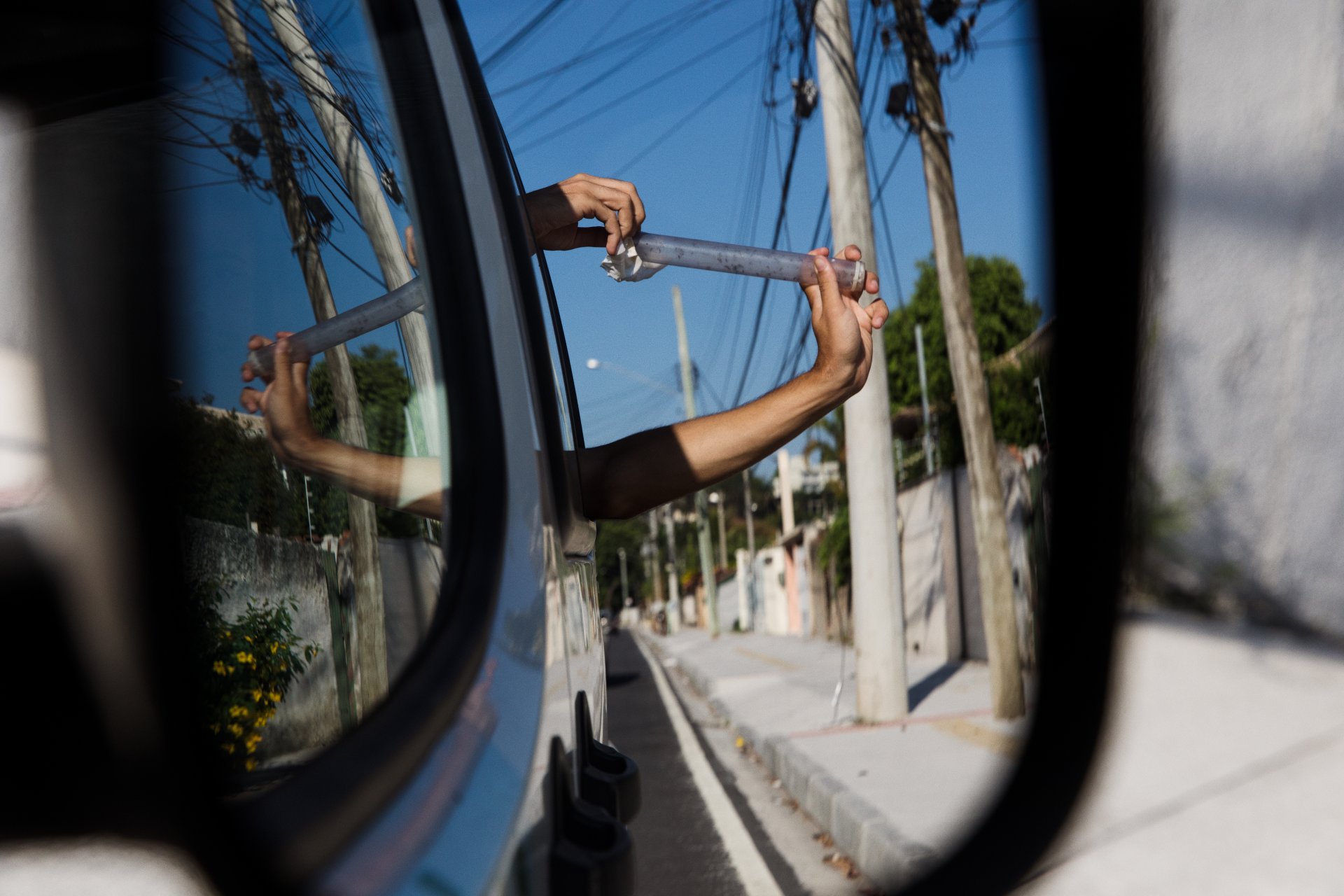

Igor, 30, works with the World Mosquito Program as a scientific communicator. On the day of Sao Sebastiao, the patron saint of Rio de Janeiro, he was allowed five minutes in Sao Sebastiao’s church to explain the Wolbachia mosquito method: it’s about introducing the Wolbachia bacteria into the Aedes mosquito population to reduce their capacity to transmit dengue, Zika and chikungunya.
Igor says, 'For me it’s more than just a job, it’s a combat for a better future.' But lots of people ask him, 'We already have so many mosquitoes, why add more?'


In the Realengo neighbourhood, Juliana brings her two children – Enzo, four, and Victor, two – to the clinic to be vaccinated as part of the TV003 dengue vaccine trial. 'We’re really hopeful that it can help combat dengue,' says the nurse. This vaccine has been tested in 17 of the 27 Brazilian states over the course of five years.
There are currently five dengue vaccines being developed worldwide, only two of which (including the TV003) have reached the trial stage. Developing a vaccine for dengue is particularly complex because the virus has four different serotypes (strains). A vaccine must be effective against all four strains, otherwise future infection can lead to complications.
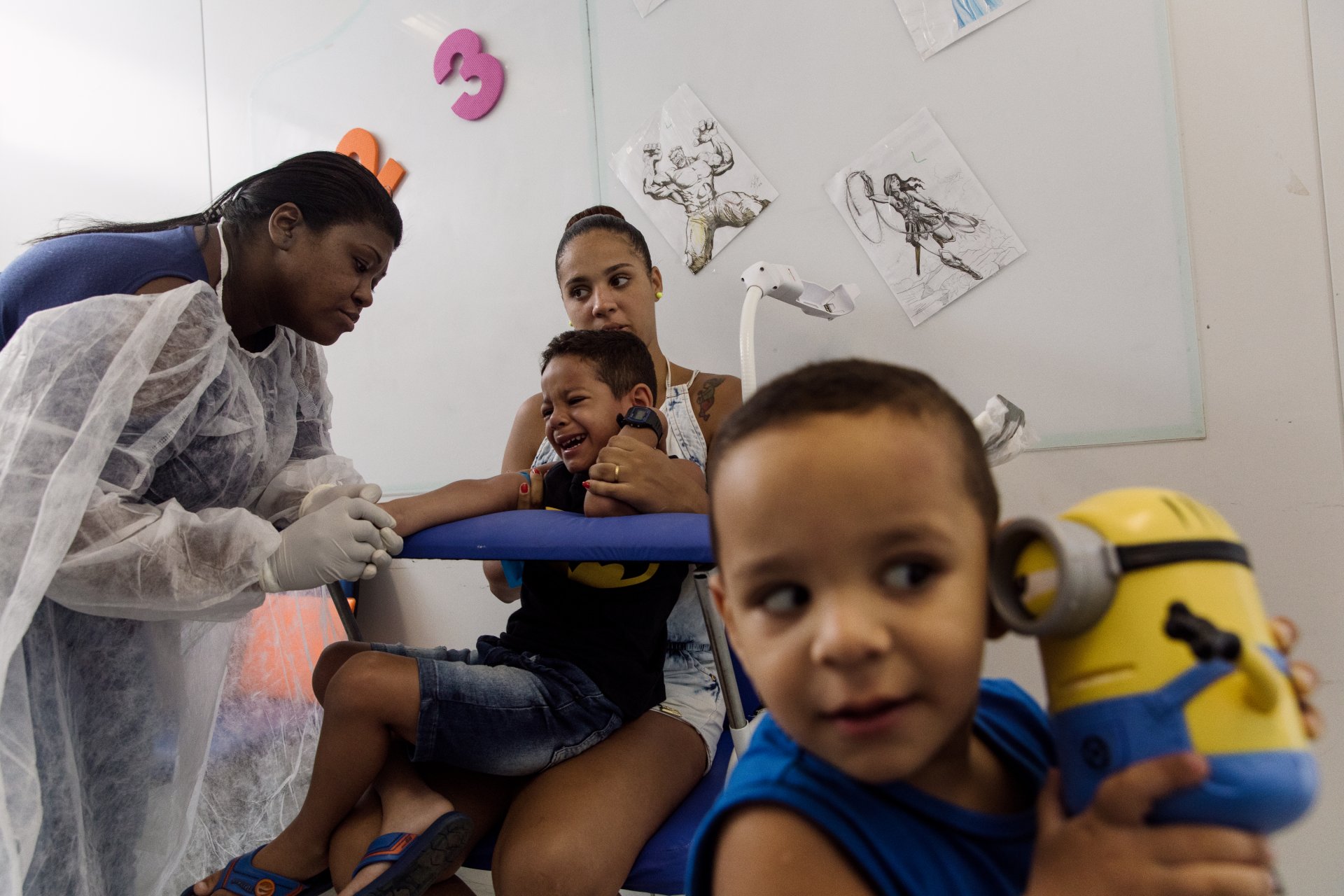

Fabiola holds her son Moises on the porch where she was shot while pregnant with him three years ago. Her neighbour rushed her to a health centre, where she remembers waking up in a pool of blood. She named her son Moises, 'as he too had crossed a bloody river'.
Now, Fabiola is worried because the closest public health clinic is closing due to funding cuts, and the private clinics are unaffordable. 'What will I do if I have an emergency?' she asks. Almost everyone in her building has suffered from an arbovirus such as dengue or Zika, and they will be even more vulnerable without access to healthcare.
Brazil had 1.6 million cases of dengue in 2015 and was the country most severely affected by the Zika epidemic in 2016.
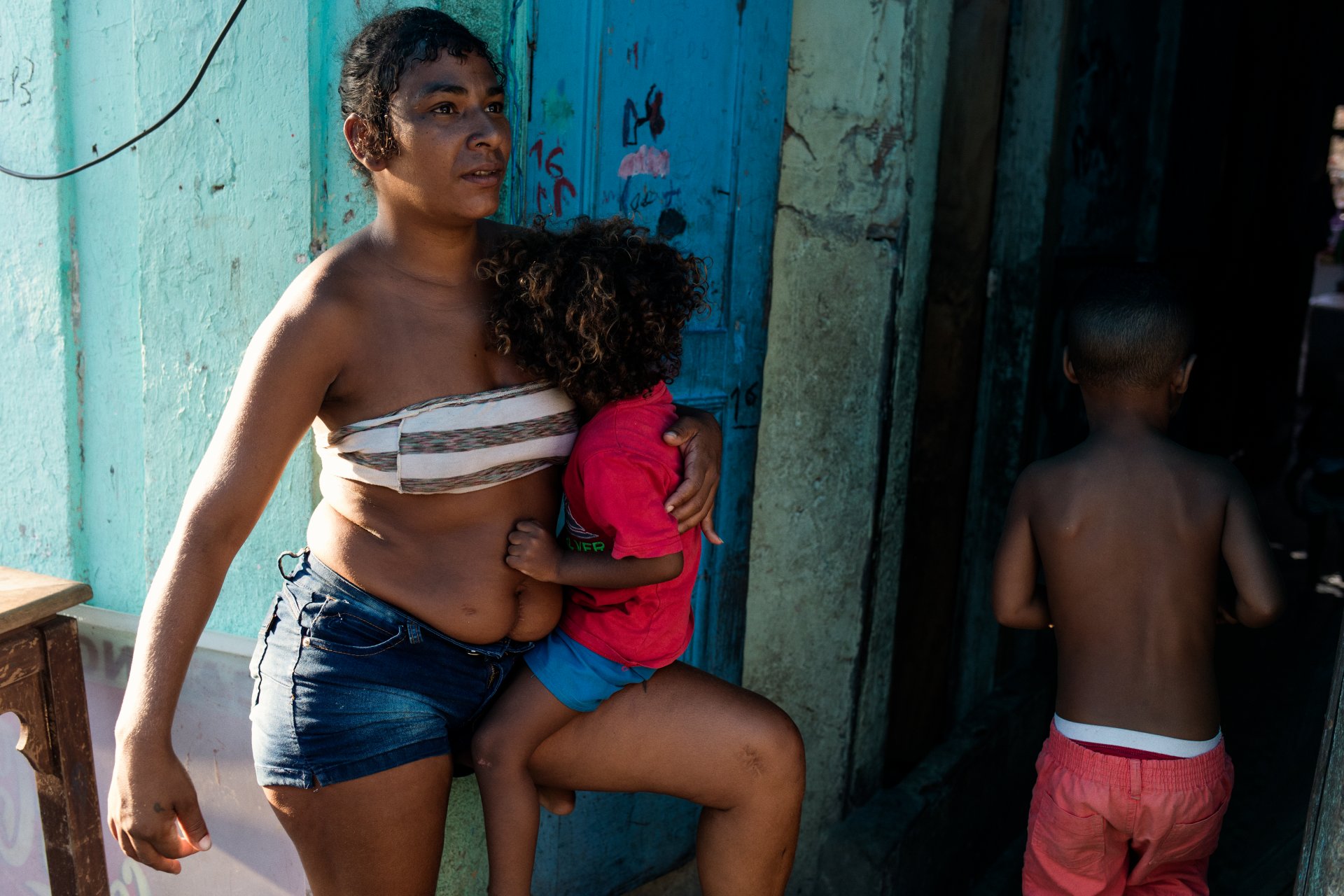
A public health programme to combat dengue on an Indian Ocean territory could have implications for mainland Europe.

In response to a confirmed case of dengue nearby, Dominique, 44, from the French governmental health agency ARS Indian Ocean, sprays the insecticide deltamethrin in the gardens around Piton Saint-Leu to prevent adult mosquitoes from spreading the virus.
The insecticide is carefully tested and adjusted to stop the mosquitoes from developing resistance. ARS Indian Ocean is a leading agency in the response to epidemics of arboviruses (diseases spread by mosquitoes, fleas or ticks) or other priority diseases in French overseas territories, such as La Réunion.
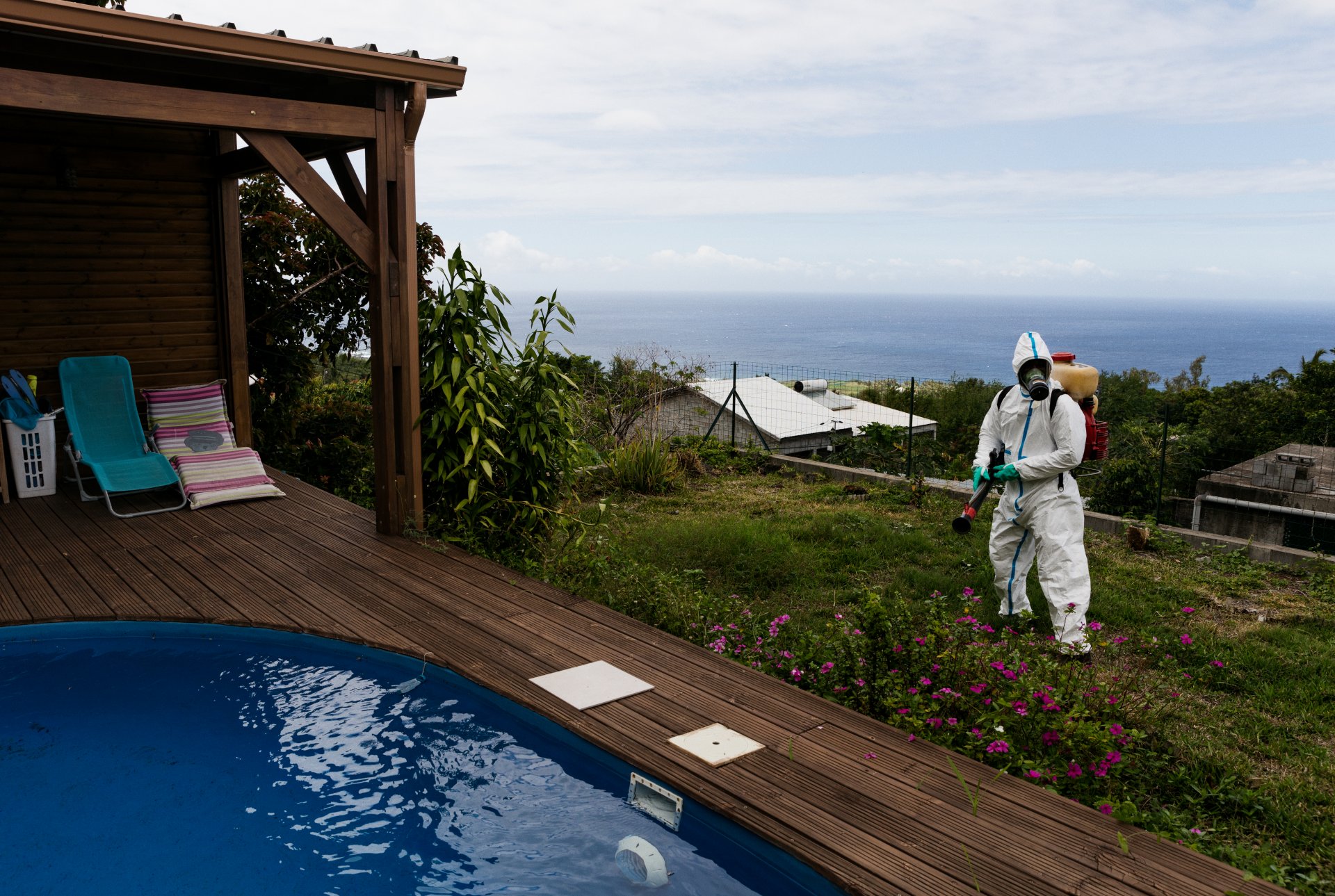

Pierre, Jason, Olivier and Moïse are collecting waste and bulky old appliances (refrigerators, washing machines, ovens, TVs) in a small ravine. Vinin, whose home is next to the ravine, has been trying for five years to get this area cleaned, and her husband is sick.
The team work for GLAIVE, an association in La Réunion that provides a free cleaning service for elderly people and people with disabilities to reduce health risks by eliminating mosquito breeding sites. As soon as a dengue outbreak begins, they receive a surge in calls.
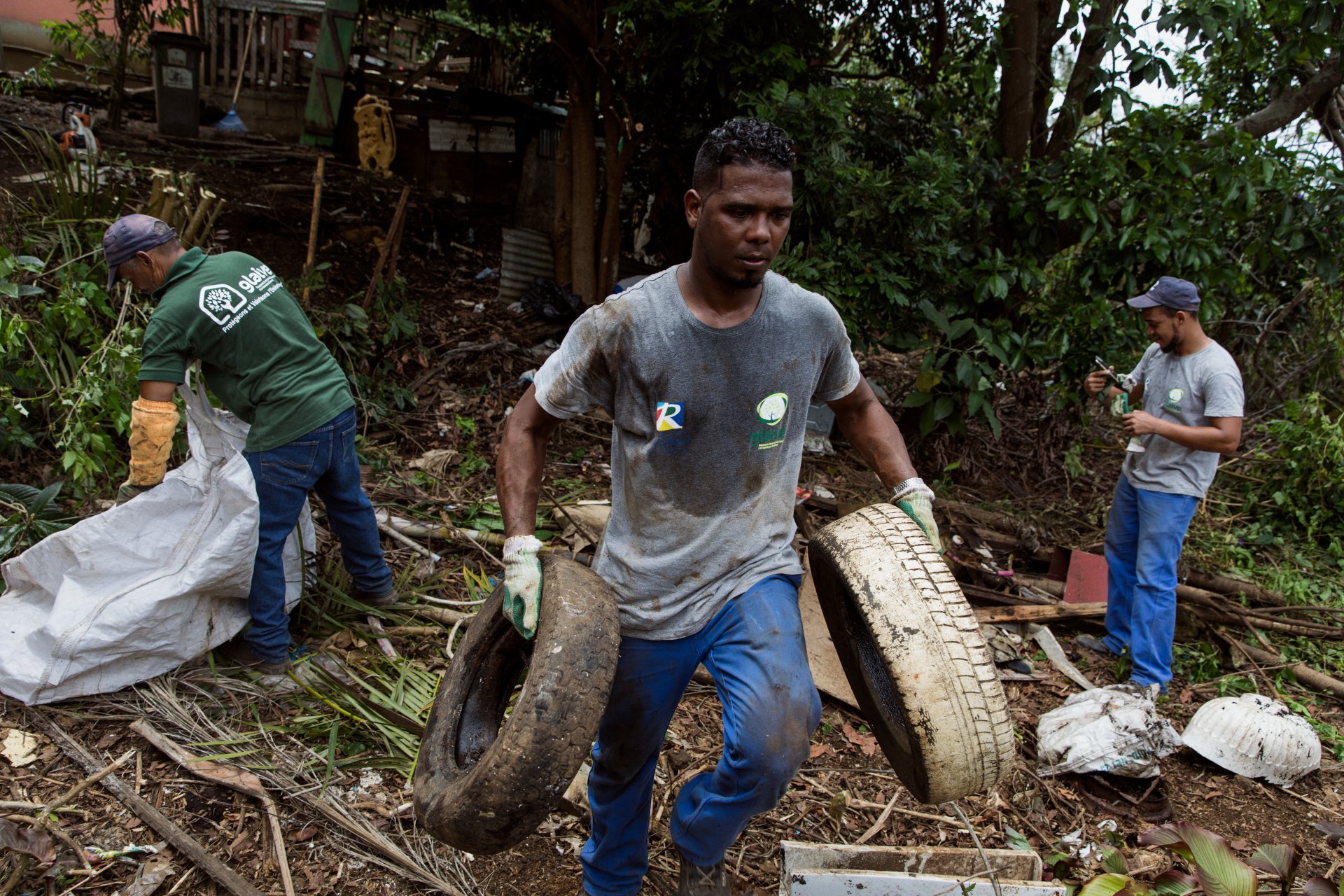

Constant separates reusable tyres at the Solyval waste management site.
On La Réunion, an ecotax is charged on new tyres to encourage people to return used ones to the vendor. Although Solyval collects around 2,500 tyres every day, this is only about 75 per cent of the total sold. The rest are often kept in gardens behind houses or dumped in the streets or ravines around the island, accumulating stagnant water which becomes a breeding habitat for dengue mosquitoes. '80 per cent of mosquito breeding sites are created by humans, 5 per cent of which are tyres,' says Solyval’s director, Mr Pincepoche.
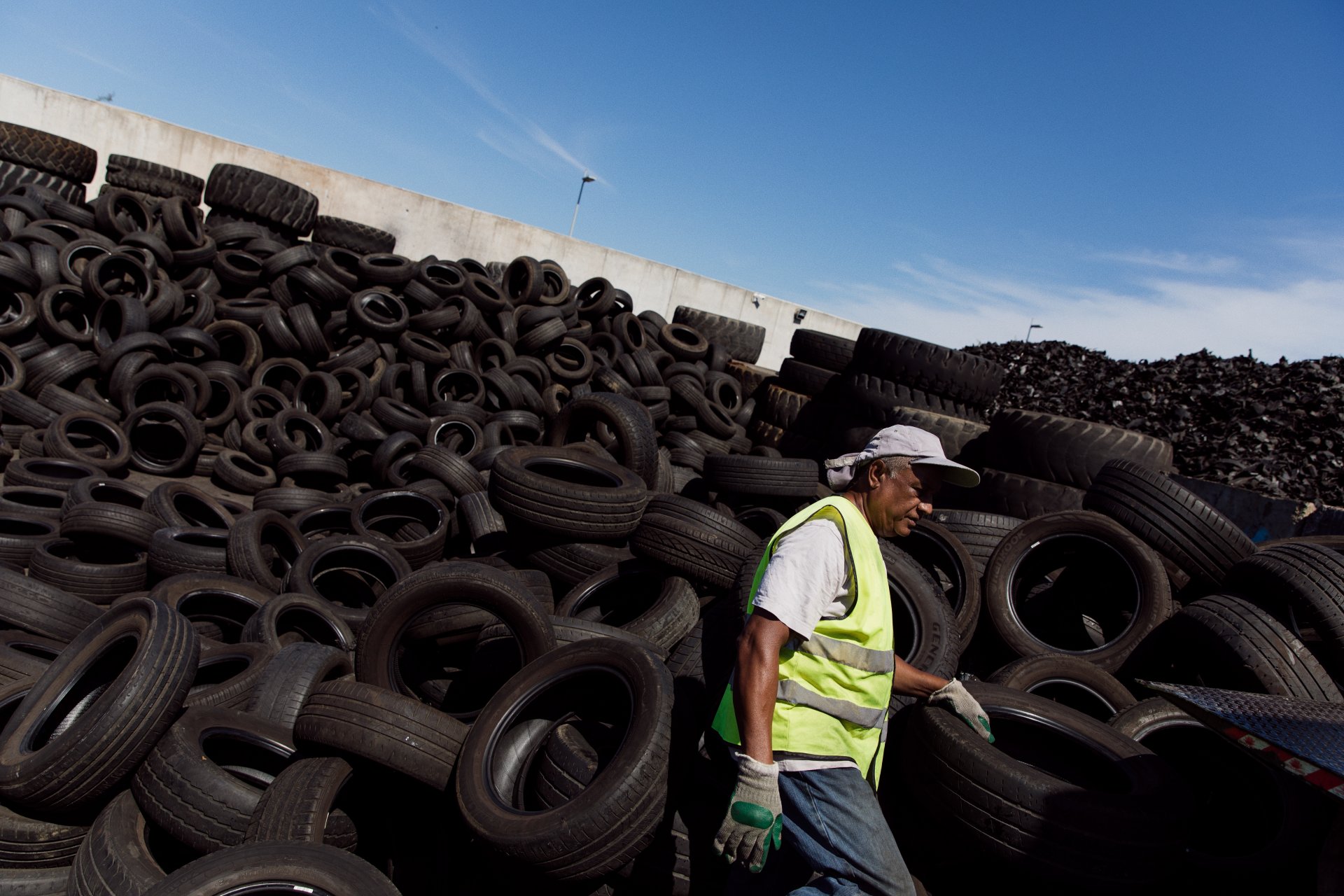

Darshan, 13, waters his plot at the Kaz Maron collective garden in Les Salines.
The garden founders took good care to install a drop-by-drop water system and accessible water tubes instead of using containers that can easily become habitats for mosquitoes to breed when water becomes stagnant.
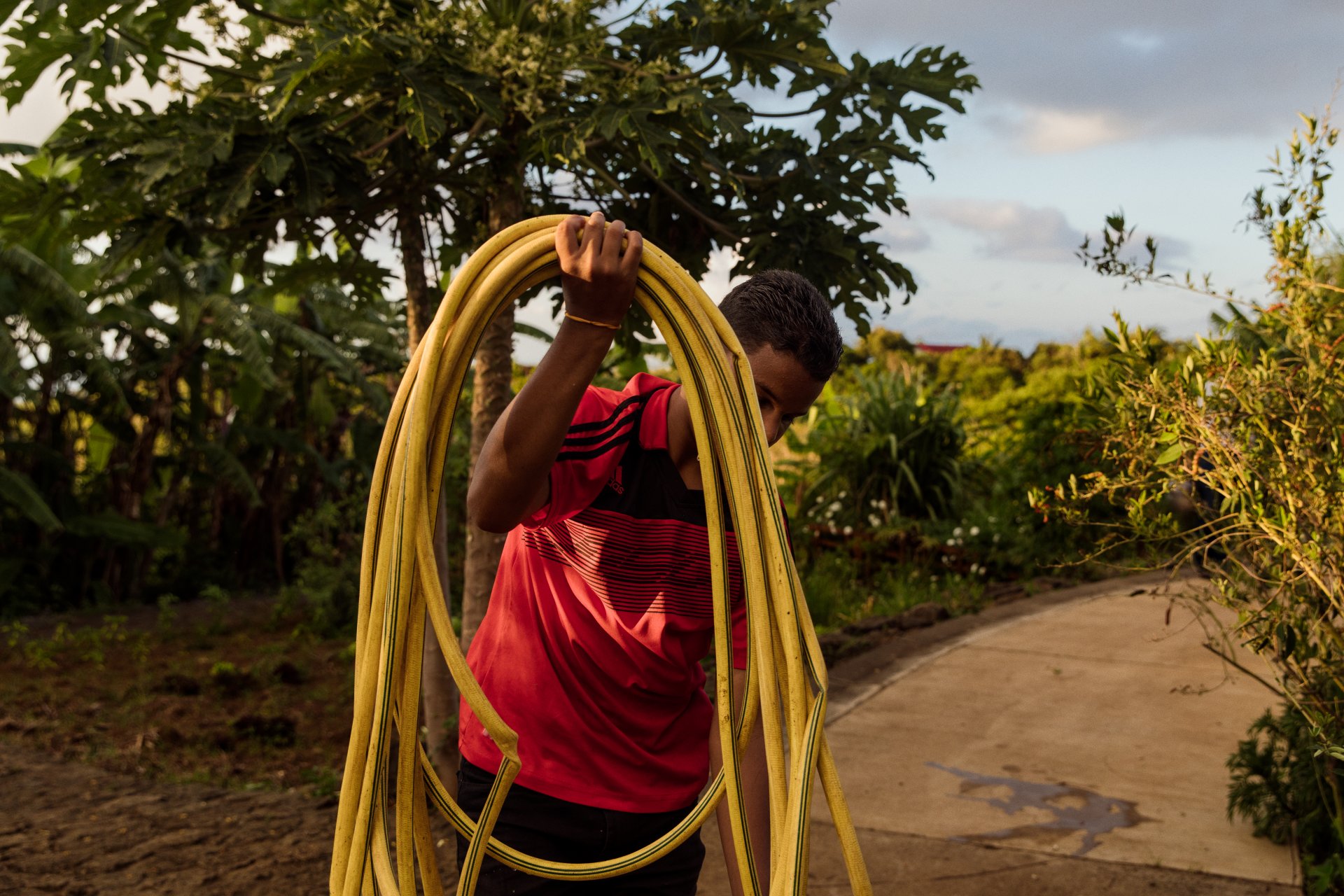
Each year the Wellcome Photography Prize Commission focuses on a new health challenge.
Adrienne is a Canadian photojournalist documenting social and environmental issues. Currently based in the Central African Republic, she has covered stories in Central America, Central Africa and the Middle East. Adrienne is a member of the Collectif Item, which takes on long-term projects that document our world.
Award-winning photographer Siân Davey has been commissioned for the Wellcome Photography Prize 2020, which explores the theme of mental health. Her forthcoming work will intimately explore the link between depression, anxiety and families living in poverty.
To make our vision for high-quality, inspiring science education a reality, we invest over £5 million each year in education research, professional development opportunities, and resources and activities for teachers and students.
Research and evidence for decision-making
Research and evidence is at the heart of our support for education. We use it to find out about and champion the things that make a positive, measurable difference to young people’s understanding of and interest in science.
The findings from our Science Education Tracker path migrated– a survey of young people’s attitudes towards and experiences of science education – help us to inform and shape future policy and practice. Through our work in educational neuroscience, we bring together insights from education, neuroscience and psychology to improve the way young people learn. And through our funding schemes not migrated, we have supported a variety of educational research.
Supporting professional development
Research tells us that the biggest impact on young people’s performance at school is the quality of teaching they receive. But to provide high-quality inspirational lessons, all teachers should have access to continuing professional development to keep up-to-date with the latest research and ways of teaching.
Since 2003 we’ve invested £45 million in science-related professional development at the National STEM Learning Centre. We also regularly invest in research into continuing professional development and its impact on teachers, schools and young people.
Transforming primary science
We know that a young person’s love for science often starts in primary school. However, other subjects have been prioritised over science in the teaching curriculum over recent years.
We want to give primary school teachers the skills, knowledge, confidence and passion they need to improve primary science teaching ac.uk That’s why we provide training and resources like Explorify – a programme of fun and simple science activities to inspire teachers and spark their pupils’ curiosity.
We also campaign for improvements to primary science through policy change.
Other areas of work
Alongside our three main areas of focus, we also support informal science learning, school governors and practical science .org